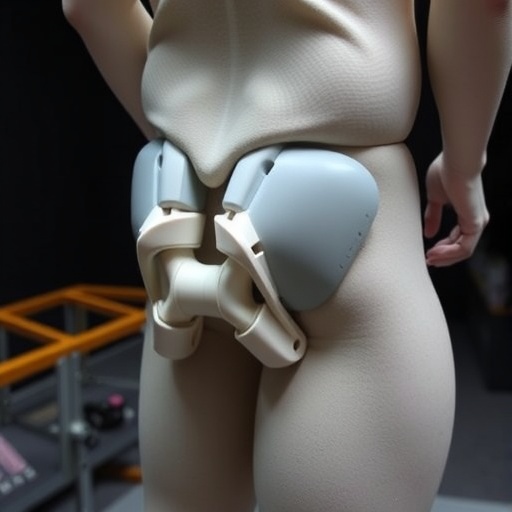
In the ever-evolving realm of kidney transplantation, a new wave of transformative technology is emerging: artificial intelligence (AI). The integration of AI into medical practices, specifically in organ transplantation, has been met with optimism and enthusiasm from practitioners and researchers alike. A recent comprehensive scientometric analysis by Rawashdeh, Al-Abdallat, Hamamreh, and colleagues sheds light on the burgeoning role of AI in this vital field, providing a detailed examination of its applications, trends, and future directions.
AI’s capabilities in processing vast amounts of data and recognizing patterns far exceed human potential. In the context of kidney transplantation, these capabilities can significantly enhance outcomes by ensuring that patients receive the most compatible organs while minimizing the risk of rejection. The analysis highlights various studies that have employed machine learning algorithms to predict graft survival, donor-recipient compatibility, and even patient health post-transplant. As research in this area continues to grow, the potential for AI to reshape transplantation medicine is becoming increasingly evident.
The authors initiated their research by delving into the existing literature surrounding AI and kidney transplantation. Utilizing a database of scientific publications, they meticulously reviewed articles to assess trends over time, the volume of research, and the geographical distribution of studies. This robust methodology unveils not only the rapid growth of interdisciplinary research but also the specific areas within kidney transplantation where AI has made the most impact. With each year, the number of publications regarding AI applications in this field has been surging, illustrating the growing interest among researchers and clinicians.
By mapping the connections between various research themes, the authors identified critical areas where AI is making significant contributions. These include but are not limited to predictive analytics for transplant outcomes, decision support systems for donor selection, and even AI-assisted surgical procedures. For instance, algorithms trained on large datasets can aid surgeons in determining the likelihood of a successful transplant based on a myriad of variables, such as medical history, donor age, and the patient’s current health status. This type of advanced analytics not only streamlines the decision-making process but also enhances the safety and efficacy of transplant surgeries.
Researchers are also exploring how AI can be utilized in post-operative care. By implementing machine learning models that analyze patient data in real-time, healthcare providers can swiftly identify and address complications that may arise in the days or weeks following a transplant. The capability of AI to monitor vital signs, laboratory results, and patient-reported outcomes offers a safety net that can lead to timely interventions, ultimately improving the overall success rates of kidney transplants.
To further illustrate AI’s transformative potential, the analysis discusses various case studies where AI technologies have successfully been integrated into transplantation protocols. In one compelling example, a team utilized a neural network to assess donor organs’ viability by analyzing infused imaging data. The results were promising, indicating that the application of AI could not only streamline the transplant process but also reduce the costs associated with organ evaluation.
Another vital aspect of the integration of AI into kidney transplantation is its ability to democratize access to care. As technologies become more advanced and user-friendly, smaller hospitals and transplant centers can leverage AI tools to enhance their capabilities. This democratization means that more patients, regardless of location or institutional resources, can benefit from cutting-edge methodologies that improve their chances of receiving a successful transplant.
The authors also suggest that interdisciplinary collaboration will play a crucial role in the successful implementation of AI in kidney transplantation. By fostering partnerships between data scientists, clinicians, and bioethicists, responsible and effective AI applications can emerge. These collaborations can help ensure that patient safety, ethical considerations, and data privacy are prioritized as these technologies develop and become entrenched in medical practice.
Importantly, the analysis acknowledges the challenges and risks associated with the growing reliance on AI in healthcare. Ethical dilemmas, data security, and the need for comprehensive training in AI tools among medical staff are just a few of the issues that need to be addressed. Additionally, the potential for algorithmic bias poses a challenge, as disparities in data could lead to unequal treatment outcomes. Addressing these concerns will require rigorous regulatory frameworks, ongoing education, and open discussions within the medical community.
As the research continues to expand, it is vital for stakeholders in healthcare to stay informed about the latest AI innovations and their implications for kidney transplantation. Those involved in organ transplant programs must strive to remain at the forefront of this technological wave, embracing the potential that AI brings while remaining vigilant about the inherent challenges. This balance between innovation and caution will ultimately dictate the future of kidney transplantation.
In conclusion, the scientometric analysis confirms that artificial intelligence is set to redefine the landscape of kidney transplantation. From enhancing surgical decision-making to improving patient follow-up care, AI’s capabilities are vast and varied. However, with great potential comes significant responsibility. As this technology advances, it will be crucial for the scientific community to rigorously evaluate its impacts to ensure that it serves the best interests of patients in need of kidney transplants.
The greater implications of AI in healthcare extend beyond just organ transplantation. As researchers uncover more innovative applications, the knowledge gleaned from these advancements will likely influence broader medical practices across various specialties. Thus, the journey into AI-enhanced healthcare has only just begun, promising exciting developments on the horizon.
As AI becomes increasingly entwined with medical practice, the commitment to ethical standards and patient-centered care must remain paramount. The collaboration of multidisciplinary teams will ensure that AI evolves not only as a technical achievement but also as a trusted ally in the noble pursuit of saving lives through effective kidney transplantation.
Subject of Research: Artificial Intelligence in Kidney Transplantation
Article Title: Artificial Intelligence in Kidney Transplantation: A Comprehensive Scientometric Analysis
Article References:
Rawashdeh, B., Al-Abdallat, H., Hamamreh, R. et al. Artificial Intelligence in Kidney Transplantation: A Comprehensive Scientometric Analysis.
Curr Transpl Rep 11, 177–187 (2024). https://doi.org/10.1007/s40472-024-00447-3
Image Credits: AI Generated
DOI: 10.1007/s40472-024-00447-3
Keywords: Artificial Intelligence, Kidney Transplantation, Machine Learning, Predictive Analytics, Interdisciplinary Collaboration, Ethical Standards, Patient Care.
Tags: AI in kidney transplantationartificial intelligence in healthcaredata processing in kidney researchdonor-recipient compatibility algorithmsenhancing patient health with AIfuture directions in AI and medicinegraft survival prediction using AIimpact of AI on transplant outcomesmachine learning in organ transplantationscientometric analysis of transplantation researchtransformative technology in transplantation.trends in organ transplantation studies




